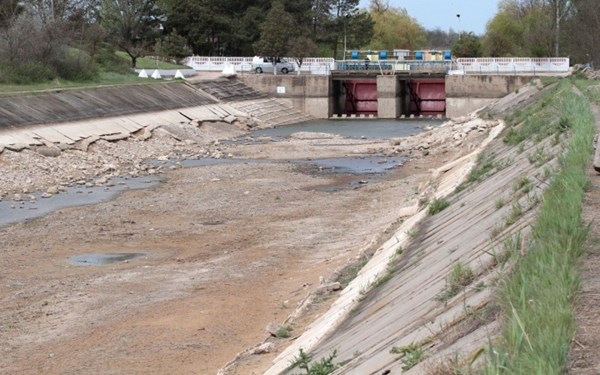Ukraine vows to prevent construction of water desalination plant in Crimea
Ukraine will prevent the implementation of the project on desalination of water in Crimea, Ukrainian Foreign Minister Dmytro Kuleba on air of the TV channel Ukraine 24.
"The illegal occupation authorities in Crimea stated that they are attracting a large international company to introduce desalination technologies. We started the work immediately and will definitely find it [this company], and we will prevent it from implementing this project," Kuleba said.
Kuleba also said that in 2021 Kyiv is going to create a Crimean platform, the goal of which will be the return of the peninsula to Ukraine. According to the minister, the platform will include foreign governments, international and human rights organizations, as well as experts. "We will make such conditions for Russia in world politics, which will squeeze it out of Crimea. Crimea is very expensive for Russia - and will cost even more," he said.
Earlier this week, the head of Crimea Sergey Aksenov said that desalination is the only way out of the water crisis for the peninsula. According to him, the construction of the desalination plant will begin in Crimea in January 2021 and will last for 14 to 16 months.
In 2017, the authorities of Kherson region of Ukraine built a dam that blocked the water supply to Crimea. Ukrainian Prime Minister Denys Shmyhal said in March this year that Ukraine technically could not restore water supply until it regains control of Crimea.
In August of this year, due to the drought and decreased water levels in the Ayan, Partizan and Simferopol fresh water reservoirs, the Crimean authorities restricted the water supply in Simferopol and surrounding settlements. Later, water supply was limited in other regions of Crimea, including Alushta, Yevpatoriya and Yalta.
In October, the Kremlin allocated 50 billion rubles from the federal budget to provide water to Crimea and Sevastopol. In addition, 8.2 billion rubles is planned to be spent on desalination of water for the peninsula.
Russian President Vladimir Putin said during a press conference that the Russian authorities will spare funds on water supply in Crimea, Novorossiysk, Gelendzhik and other regions experiencing problems with fresh water. Putin noted that there are enough freshwater reserves in Crimea. At the same time, Putin called desalination plants expensive an expensive method to solve the water crises, pointing out that this method cannot be used everywhere.
Ukraine used to provide up to 85% of Crimea's fresh water through the North-Crimean Canal, which connects the Dnieper River with the peninsula. After Russia's annexation of Crimea in 2014, water supplies to the peninsula were cut off.
Water reserves in Crimea are replenished from reservoirs of natural runoff and underground sources. According to ecologists, the excessive use of water from natural sources has led to the salinization of the soil on the peninsula. Crimean authorities regularly call on the residents of the peninsula to save water.
The Permanent Mission of the President of Ukraine in Crimea reported that the supply of water to Russia-annexed Crimea and Sevastopol via the North Crimean Canal is possible only after the “de-occupation of the peninsula”.
